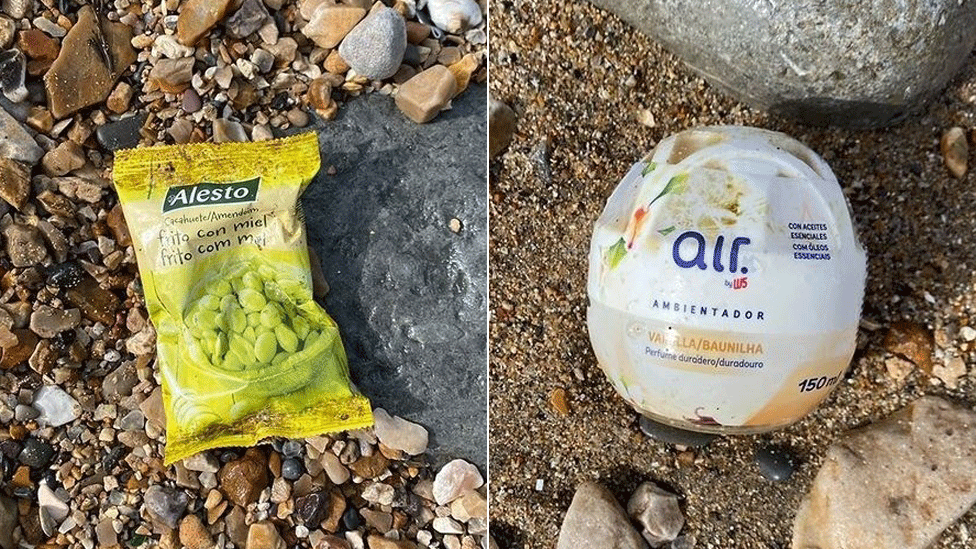Jurassic Coast: National Trust buys farm to boost wildlife
- Published
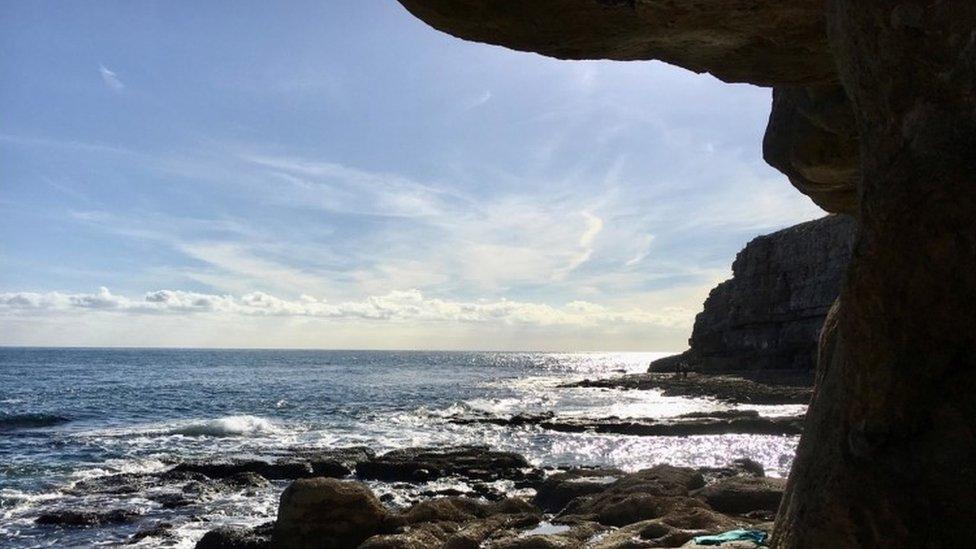
Caves and abandoned stone quarries on the site are home to 15 of Britain's native bat species
A farm and 350 acres of land on Dorset's Jurassic Coast have been bought by the National Trust in a bid to boost wildlife, including rare bats.
The charity said it would let the land at Weston Farm on St Aldhelm's Head, South Purbeck, "rest and recover".
The 7km (4.4 mile) stretch of coast is home to 15 species of bat, including the rare serotine and barbastelle bats.
The trust said the site is Dorset's most important swarming site for bats.
Each autumn thousands flock to Winspit caves from up to 60km (37 miles) away "for a night of speed dating and mating on the wing," the trust said.
"This is Dorset's most important swarming site for bats and a site of national significance."
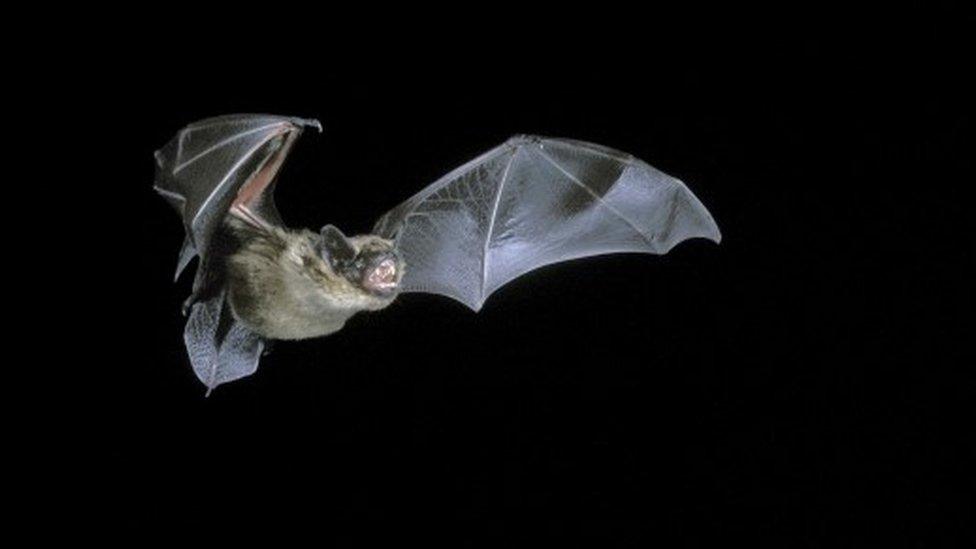
The charity said thousands of bats flock to the caves in the autumn for a night of "speed dating"
The caves and abandoned quarries along the coastal edge of the site are also used for winter hibernation by some bat species.
It is hoped the site will become a network of grasslands, wildflower meadows, scrub and wildlife through a combination of both natural recovery and regenerative agriculture, the charity said.
Hedgerows, scrub and small woodlands should provide a boost to small mammals and birds.
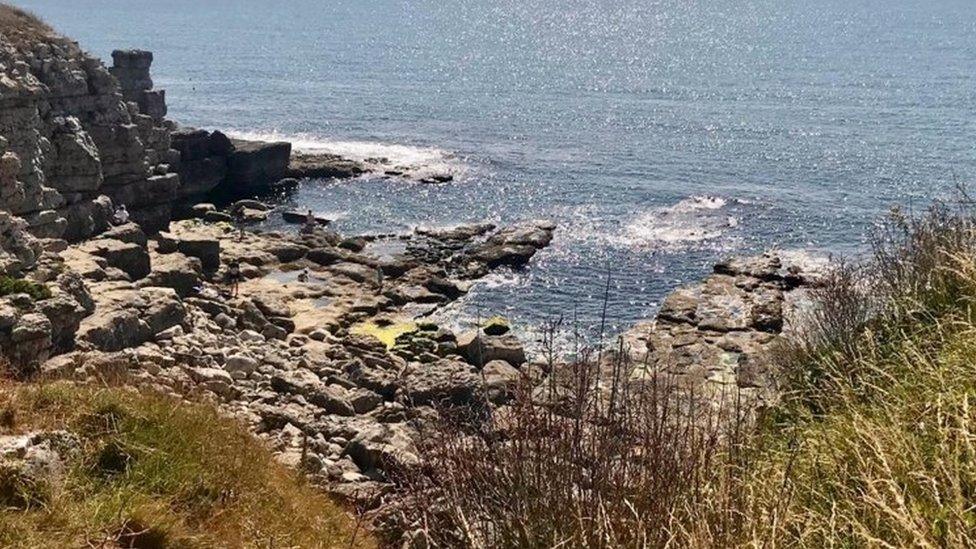
The charity said the South West coastal path, which runs along the edge of the farm, will be moved further back
The South West Coastal Path, which runs along the edge of the farm, will be moved inland.
Tracey Churcher, National Trust general manager for Purbeck, said it would give "walkers room to spread out, savour the remarkable coastal views and take in the nature-rich landscape".
The charity said: "As the land is given time to rest and recover, the ground will store more carbon, and streams flowing off the land will be cleaner and healthier."
The farm was bought by the charity after the current owner retired. It had been farmed by the same family for three generations.
It was paid for through the National Trust's Neptune Fund, supported by four significant donations.

Follow BBC South on Facebook, external, Twitter, external, or Instagram, external. Send your story ideas to south.newsonline@bbc.co.uk, external.
Related topics
- Published26 March 2022
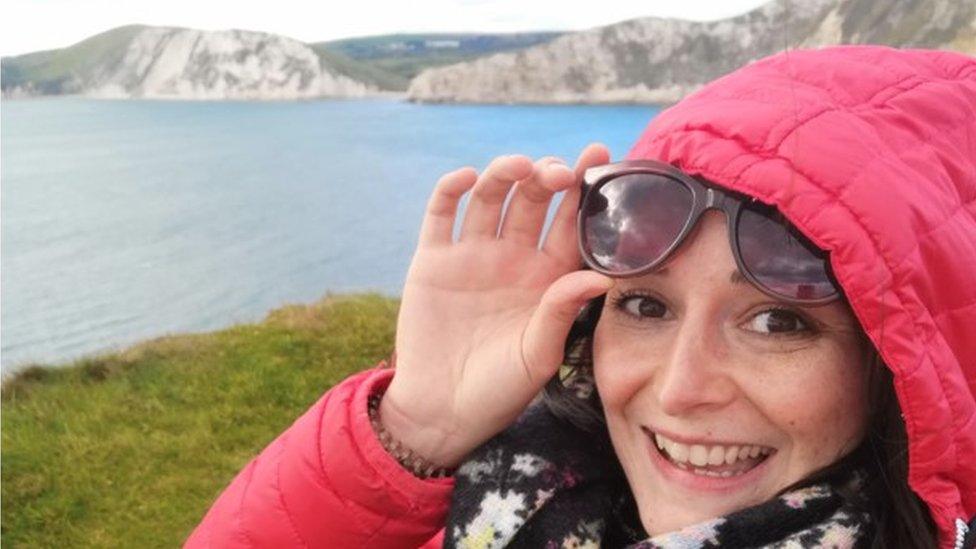
- Published25 March 2022
